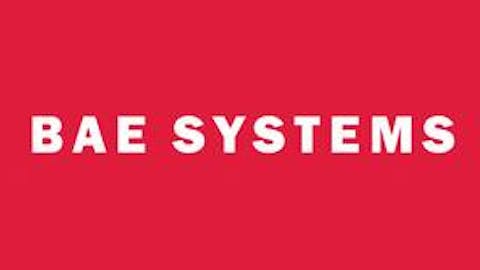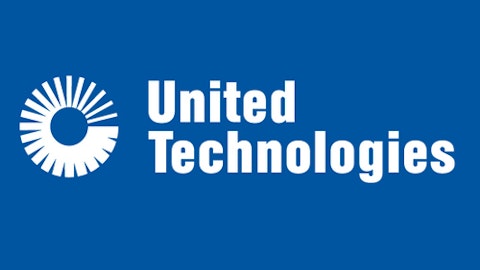Both The Boeing Company (NYSE:BA) and Airbus (a subsidiary of European Aeronautic Defence and Space (NASDAQOTH:EADSY)) predict that the number of commercial aircraft in operation will double globally in the next 20 years, with 60% of the increase coming from the Asian, Latin American, and Middle Eastern markets.
All told, this means roughly 32,000 new planes if we average the two companies’ estimates. About 12,000 of those should be headed to the Asia-Pacific region, while some 7,000 should fill European orders. Airline consolidation has reduced U.S. orders, and that trend could be headed to Europe, so be aware that the European estimate might be adjusted downward.
Future design changes
Rising oil prices are forcing carriers to think more about fuel efficiency. For manufacturers, this means smaller planes that burn less fuel. This will lead to an increase in orders of efficient planes, which The Boeing Company (NYSE:BA) and Airbus both plan to address with planes scheduled for widespread release in the near future. These planes herald a future of fuel-efficient carbon-plastic models that are designed to slash fuel costs, which make up one-third of the industry’s costs.
The Boeing Company (NYSE:BA) 787 Dreamliner—The 787 is designed to be 20% more fuel-efficient than its predecessor, the 767. It is the first jet to be made entirely of composites, which makes it far lighter than the competition and contributes to the efficiency. So far Boeing has received 890 orders and an increase of 54 over all of last year year-to-date. Some 57 deliveries have been made to date.
Airbus A350—The A350 was designed to compete directly with the 787 and claims that it has operating costs of 8% less than the 787. It features carbon-fiber panels but is not made entirely of composites. Airbus believes that this is a safer design and that the 787’s use of composites is premature. To date, there have been 616 orders, none of which have been delivered. The plane will most likely make its maiden voyage at some point this summer.
United Technologies Corporation (NYSE:UTX) will benefit
United Technologies Corporation (NYSE:UTX) manufactures engines for Airbus, Embraer SA (ADR) (NYSE:ERJ), and Bombardier planes, and it will see an increase in demand concurrent to the increase in demand for planes. Although the 787 and A350 are designed for efficiency, regional carriers need to cut their costs of running shorter flights as well.
United Technologies Corporation (NYSE:UTX) has pioneered a new Turbofan engine designed to meet the needs of regional carriers that demand quiet and efficient engines. The engine features a gear box that could cut the sound radius of planes taking off by 75%, according to Pratt and Whitney, the division of United Technologies that manufactures jet engines.
On top of this, the engine reduces fuel consumption by about 15% compared to engines currently on the market and cuts emissions by 50%. This engine should set the standard in the future (General Electric Company (NYSE:GE) has announced plans for a similar engine) and is undoubtedly a winner for United Technologies. Look for revenue from Pratt and Whitney to increase over the long term and for United Technologies’ stock to benefit accordingly.
Boeing and Airbus are in good financial standing
Currently, The Boeing Company (NYSE:BA) has a backlog of $392 billion. This is a staggering amount of revenue already under contract, and covers about seven years of production. Given the projections of rapid growth in the industry, this backlog should increase and Boeing should have a steady revenue stream that increases over time. As a testament to this, deliveries increased 27% in 2012 yet the backlog still increased. That bodes well for The Boeing Company (NYSE:BA).
In terms of traditional metrics, Boeing is in good stead. Its P/E ratio of 19.1 is on par with the industry P/E, and analysts predict sales growth of 10% over the next year as well as a 27% increase in EPS.
If The Boeing Company (NYSE:BA)’s financials are strong, Airbus’ are off the charts. Its backlog totaled more than $638 billion at the end of FY12, an industry record covering well over seven years of production. Its deliveries increased by 10% as well, and the company booked 40.6% more contracts than anticipated. Given internal and external projections, those numbers are indicative of things to come. Airbus’ P/E of 26.4 is well above the industry’s, indicating expectations of strong growth.
Foolish conclusions
Demand is capable of supporting production increases for both Boeing and Airbus, which should increase sales for both companies. They have both hit multi-year highs in recent weeks, but they have potential for strong growth in the future.
There is a large demand for replacements for aging airplanes, and Boeing and Airbus will benefit from that demand, as will United Technologies by proxy. Judging by the strong market share that The Boeing Company (NYSE:BA) and Airbus possess, as well as by the projections for increased demand, it’s safe to say that all three stocks are excellent long-term growth options.
The article Plane Manufacturers Are Poised to Take Flight originally appeared on Fool.com and is written by Hunter Hillman.
Hunter Hillman has no position in any stocks mentioned. The Motley Fool has no position in any of the stocks mentioned. Hunter is a member of The Motley Fool Blog Network — entries represent the personal opinion of the blogger and are not formally edited.
Copyright © 1995 – 2013 The Motley Fool, LLC. All rights reserved. The Motley Fool has a disclosure policy.






